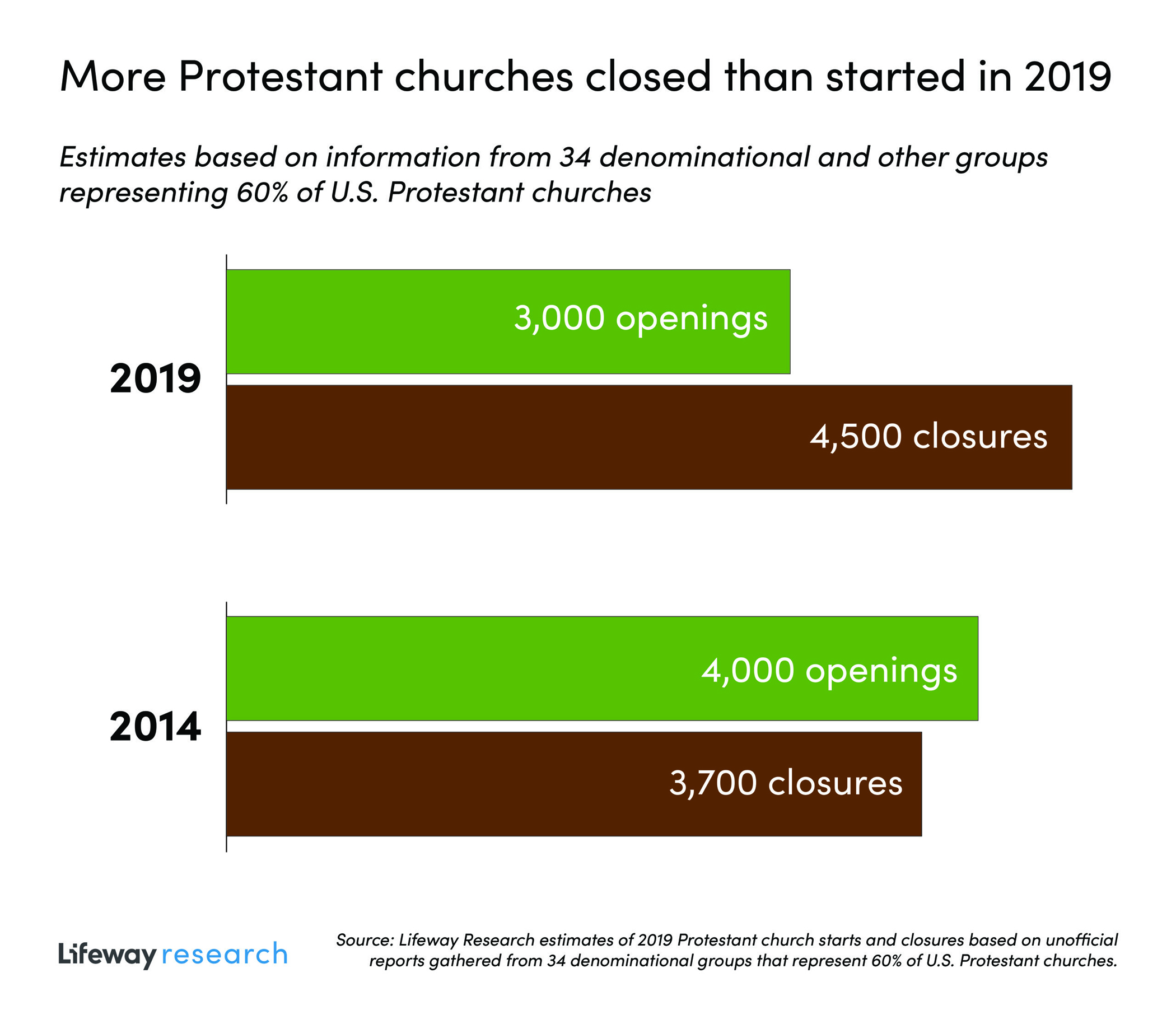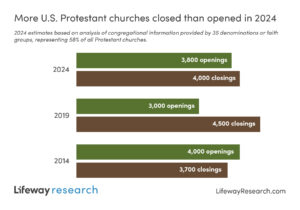NASHVILLE (BP) – More Protestant churches in the U.S. shut their doors than were planted in 2019, the latest year for which information is currently available, says LifeWay Research, a division of Southern Baptists’ LifeWay Christian Resources in Nashville.
Approximately 3,000 Protestant churches were started in the U.S. in 2019 and 4,500 closed, according to estimates in the Lifeway Research study that analyzed congregational information from 34 denominations and groups representing 60% of U.S. Protestant churches.
The 2019 gap indicates a shift from Lifeway Research’s previous analysis for 2014, which showed an estimated 4,000 Protestant churches were planted and 3,700 closed.

“Over the last decade, most denominations have increased the attention they are giving to revive existing congregations that are struggling,” says Scott McConnell, executive director of Lifeway Research. “This has been more than a fad. This has been a response to a real, growing need to revitalize unhealthy congregations.”
The numbers provide a clarifying reminder to American Christians, according to Ed Stetzer, executive director of the Wheaton College Billy Graham Center in Wheaton, Ill., and McConnell’s predecessor at LifeWay Research.

“Church planting is slowing, and the number of closures is growing,” Stetzer says. “Yet, the opportunity is still before us. People are searching spiritually, and the Gospel is the answer.”
Stetzer, who has helped start several churches and written numerous books on church planting, notes the 2019 numbers came prior to the COVID-19 coronavirus pandemic in the U.S.
“Certainly, the pandemic [period of time] will show even more challenging numbers, and though they may be a blip, the larger trend is concerning,” he points out.

One church planter says the decline in new churches was expected but is still troubling. “While planting a church is still one of the most exciting things a pastor can do, over the past few years I’ve noticed a growing hesitancy to plant, which is why these numbers don’t surprise me,” says Daniel Im, co-author along with Stetzer of Planting Missional Churches and a church planter himself in Edmonton, Alberta, Canada.
“Starting a church from scratch is not as it used to be, especially with the rise in [Baby] Boomer pastors retiring and [churches] needing to find a successor,” he stresses.
The previous Lifeway Research analysis of church plants provides reasons for leaders to want to see successful starts of new congregations, because the 2015 study found newly planted churches were more effective than existing congregations at drawing people who weren’t connected with a church.
On average, 42% of those worshipping at churches launched between 2008 and 2014 previously never attended church or hadn’t in many years.
Im posits the decline in church plants may have to do with a thought in the minds of many pastors. “While some might attribute these numbers to the uncertain economy or a lack of faith, I see it having to do with a growing awareness that some pastors might just be better suited to revitalize a church than plant a new one,” he says.
That doesn’t mean new church plants aren’t needed. “The U.S. population continues to grow, so there is a need for new churches to share the Gospel with everyone,” McConnell observes, “but even before the pandemic the pace of opening new congregations was not even providing enough replacements for those that closed their doors.”








